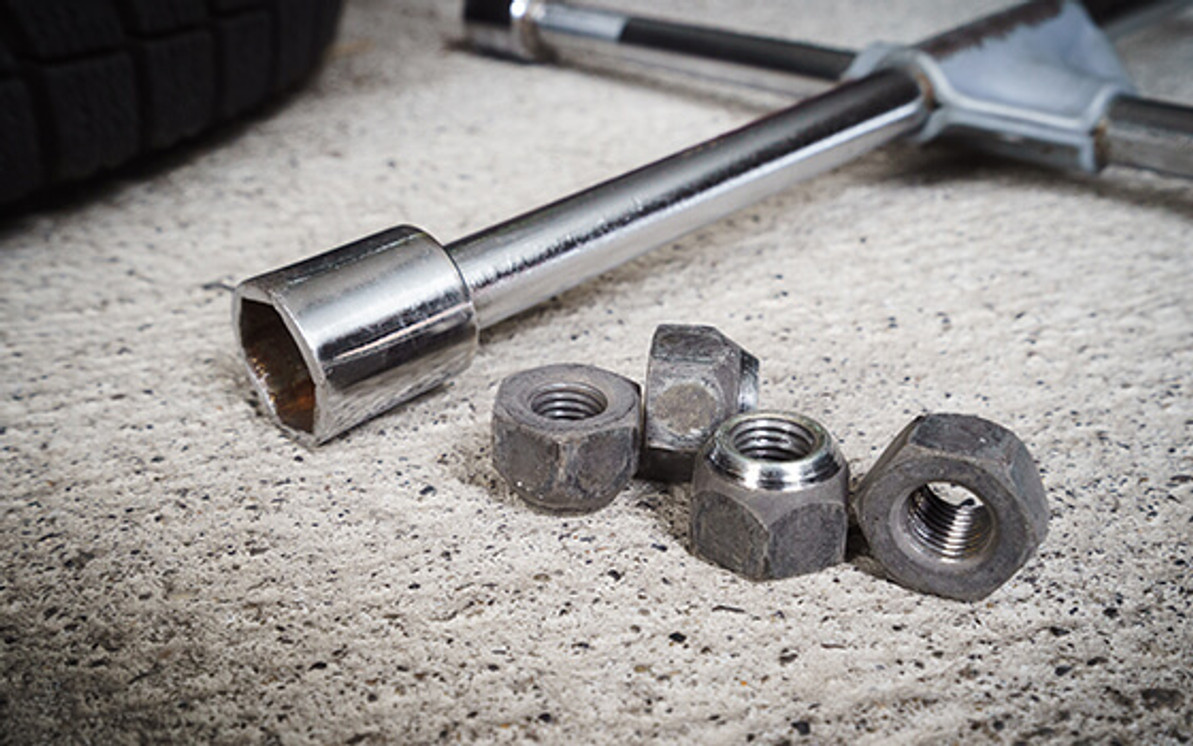Typical Lug Nut Torque Specifications for Aluminum Trailer Wheels
The torque that is to be applied to lug nuts on a typical aluminum trailer wheel varies with the size of the stems on your trailer. Common size stems on a trailer often are 1/2", 9/16" or 5/8". Below is a table to guide you as you are installing the wheels on your trailer.
|
Lug Size |
FT/LBS Torque |
| 1/2" | 90-120 |
| 9/16" | 120-140 |
| 5/8" | 140-160 |
Lug Nut Torquing
Ensuring the tightness and proper torquing of lug nuts on trailer wheels is a critical responsibility for trailer owners and users. Inadequate wheel nut torque is a leading cause of lug nut loosening, which, if not addressed, can result in wheel separation, posing serious safety risks. The Trailer Safety Industry Coalition (TSIC) emphasizes the importance of eliminating wheel separations and seeks assistance from trailer owners in achieving this goal.
Understanding Maintenance Responsibilities:
To begin with, it is essential for trailer owners to have a clear understanding of the specific wheel maintenance responsibilities outlined by the vehicle manufacturer. These responsibilities must be diligently performed to guarantee the safe upkeep of wheel equipment. Regularly checking lug nut tightness, especially during the initial few hundred miles of trailer use and at least biannually, is crucial. Additionally, it is advisable to check torque before embarking on long trips and whenever a wheel is removed. Consult the owner's manual and communicate with the dealer if there are any uncertainties regarding proper torque practices.
Importance of Torque Wrench:
The only foolproof method to ensure the lug nuts are torqued to the proper specification is by using a torque wrench. While four-way wrenches, ratchets, and similar tools may serve for short-term emergency repairs, they are not suitable for accurately checking lug nut torque. Employing a torque wrench provides an accurate indication of the torque applied to the lug nuts, promoting optimal safety standards.
Documentation and Investigation:
Maintaining a record of the date and approximate mileage when checking lug nut torque is a recommended practice. If any lug nuts have lost torque, thorough investigation is imperative. If torque is not sustained after one re-torque application, it signals an underlying issue with the lug nuts, nut studs, wheels, or hubs, necessitating correction. In such cases, prompt communication with the dealer or vehicle manufacturer is essential.
Immediate Action for Persistent Issues:
Persistent issues with lug nut loosening or any other lug, wheel, or axle problems should be promptly addressed. Contacting the dealer or vehicle manufacturer immediately is crucial for a timely resolution. Timely intervention can prevent potential safety hazards associated with wheel separation.
Dealing with Wheel Separation Incidents:
In the unfortunate event of a wheel separation incident, swift action is necessary. Notifying the vehicle manufacturer and dealer is the first step. Seeking professional assistance to assess the trailer and its components is crucial for understanding the extent of the damage. It is advised to retain, but not re-use, the lugs, wheels, and studs involved in the incident. Attempting to repair or service the trailer independently is discouraged; instead, a trained technician should be called upon to address the issue.
The meticulous torquing of lug nuts is a fundamental aspect of trailer maintenance that directly impacts safety on the road. Trailer owners play a pivotal role in ensuring the proper torquing of lug nuts, which is vital for preventing wheel separation incidents. By adhering to manufacturer recommendations, using the appropriate tools, documenting torque checks, and taking swift action in case of issues, trailer owners contribute to a safer and more secure towing experience. Prioritizing lug nut torquing is not just a responsibility; it is a proactive measure to safeguard lives on the road.
Recent Posts
-
Lawn and Garden Tire Information
Spring is here, which means it's time to bring out the lawn tractor and get the yard ready for warme …Mar 24th 2025 -
Snowmobile Trailer Tips
When the snow starts to fall, you may be itching to hop on your sled and hit the trails. However, be …Jan 6th 2025 -
Keep Your Golf Cart on Course - A Guide to Golf Cart Maintenance
Golf carts are a useful and convenient mode of transportation for leisure and for work …Sep 30th 2024




